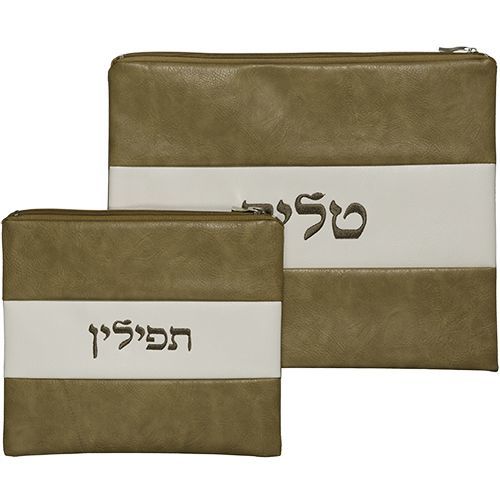
A Higher Connection
In hitbodedut, a person connects to G-d in a beautifully simplistic way. Although our soul is a part of G-d, we must still open our mouths and create a personal dialogue with God.

Rebbe Nachman on Hitbodedut, part 1
Chambers of the Palace, Part 10
Higher than Anything
The practice of hitbodedut is on a very great level. It is higher than everything else.
 One practices hitbodedut as follows: one sets aside at least one hour, if not more, to be alone in a room or in a field, and one speaks extemporaneously to God, with pleading, words of grace, requests for acceptance and forgiveness, beseeching God to draw one to truly serve Him.
One practices hitbodedut as follows: one sets aside at least one hour, if not more, to be alone in a room or in a field, and one speaks extemporaneously to God, with pleading, words of grace, requests for acceptance and forgiveness, beseeching God to draw one to truly serve Him.
This prayer should be in one’s native tongue, and not, as the formal prayers are, in Hebrew. This is because unless Hebrew is one’s native tongue, it is difficult to speak one’s mind in the Holy Tongue. One’s heart isn’t drawn after the words, because one isn’t used to that language. But in one’s native tongue, it is easier to affect oneself and break one’s heart.
This is because the heart is affected by words in one’s native tongue.
In one’s native tongue, one can express oneself and tell God all that is on one’s heart, whether it be regret and repentance for the past or a prayerful request to come close to God from this day forth, or other matters—each individual according to the level he is on.
One must do this every day for an hour.
For the rest of the day, one should be joyous.
This practice is on an extremely high level. It is a very good path by which to come close to God. It is a practice that includes everything else. Whatever one’s imperfections, or [even] if one is completely removed from serving God, one can speak and plead before God.
Even if at times one’s way is blocked and one cannot open one’s mouth to speak to God, the very fact that one has prepared oneself to stand before God and that one desires to speak is itself very good.
One can turn this itself into a prayer. One can cry to God that one is so far from Him that one finds it impossible even to speak to Him. One can ask God for compassion to open one’s mouth to speak to Him.
Many great and well-known tzaddikim reported that they only came to their level as a result of this practice.
The wise person will understand the greatness of this practice, which rises to the very heights.
This is a practice that anyone, great or small, can engage in. Everyone can do this and come to a great level.
Fortunate is the one who engages in this practice. (Likutei Moharan II, 25)
Hitbodedut is a spontaneous and unstructured meditative practice that needs no preparation or training. The practitioner of hitbodedut is not confined to a particular stance, chant or ritualized set of movements. Thus, hitbodedut has two great advantages:
- Hitbodedut doesn’t stifle an individual by requiring him to maintain a rigid posture for long periods of time, to concentrate on one small object or one topic, or to maintain a certain level of meditative consciousness. Rather, it allows free mental and physical movement. This frees the practitioner to naturally and spontaneously deal with whatever particular part of his psyche needs correction, not forcing him to one limited area. It allows a person to let a great amount of illumination flow through him. He can help channel and dissipate the energy in any way he likes—dancing, clapping, singing, and so on.
- It doesn’t force a person to push himself to reach a goal which he isn’t prepared to get to at the moment. Hitbodedut allows a person to develop his spiritual capacity at a natural pace.
Also, hitbodedut doesn’t degenerate into a narcissistic fascination with one’s own spiritual experience. Hitbodedut concentrates not on making oneself feel “high” but on establishing a connection with God and on achieving improvement in all areas of one’s life.
Hitbodedut allows a person to act normally—to talk to God in a normal way, or sing, or clap and dance or walk about or plead or argue or review the past or speak of the future and so on. Hitbodedut does not stifle the intellect. A person can use his intellect in speaking to God in examining his situation, even arguing with God, and the like.
As a result, hitbodedut is particularly effective in (1) bringing Godliness down into the practitioner and (2) extending this awareness of God and of one’s relationship to God into other areas of life.
In hitbodedut a person must speak, must move his lips and tongue, must speak like a human being. He brings holiness down into his very speaking and so into this world, rather than climbing up into a realm of meditative silence. This applies to all the other spontaneous acts one can carry out in hitbodedut.
Hitbodedut allows a person to begin with himself as he is.
A person can use hitbodedut to deal with whatever is on his mind, from the most personal to the most universal.
In hitbodedut, a person relates directly to God in an intensely natural and human way. He relates to God with the natural expression that God gave him. Although he knows his soul is a part of God, he knows that he must still open his mouth and create a personal dialogue with God.
Hitbodedut addresses itself to all of a Jew’s spiritual needs.
Sometimes a person has a goal in his conscious mind. Hitbodedut can burn it into his subconscious so that he is now united in his effort and desire to reach that goal.
Also, hitbodedut can clear up hidden conflicts and resolve previously unknown stumbling-blocks to personal progress. It can help a person make fine discrimination in dealing with a situation.
***
From “Chambers of the Palace”, an anthology of Rebbe Nachman’s writings abridged and translated by Yaacov Dovid Shulman. Writer, translator, and editor Yaacov Dovid Shulman can be contacted at: yacovdavid@gmail.com













Tell us what you think!
Thank you for your comment!
It will be published after approval by the Editor.